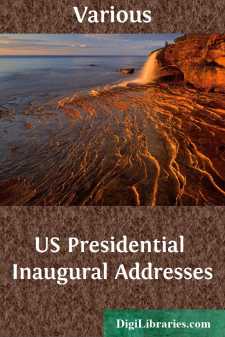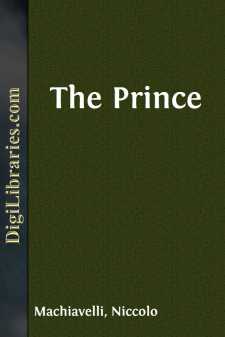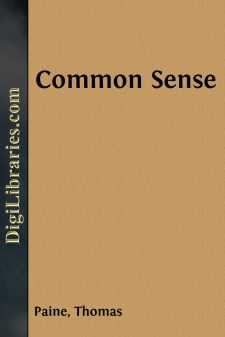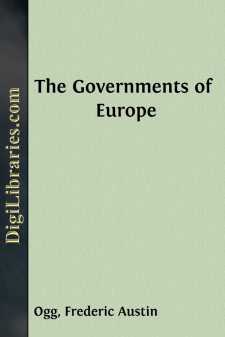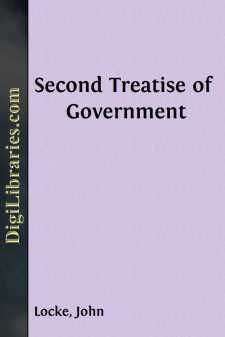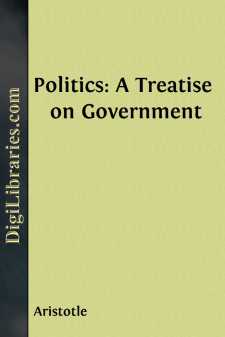Political Science
Political Science Books
Sort by:
by:
Various
AMONG the vicissitudes incident to life no event could have filled me with greater anxieties than that of which the notification was transmitted by your order, and received on the 14th day of the present month. On the one hand, I was summoned by my country, whose voice I can never hear but with veneration and love, from a retreat which I had chosen with the fondest predilection, and, in my flattering...
more...
Bill Clinton's Inaugural Address My fellow citizens, today we celebrate the mystery of American renewal. This ceremony is held in the depth of winter, but by the words we speak and the faces we show the world, we force the spring. A spring reborn in the world's oldest democracy, that brings forth the vision and courage to reinvent America. When our founders boldly declared America's...
more...
by:
Thomas Hobbes
CHAPTER I. OF SENSE Concerning the Thoughts of man, I will consider them first Singly, and afterwards in Trayne, or dependance upon one another. Singly, they are every one a Representation or Apparence, of some quality, or other Accident of a body without us; which is commonly called an Object. Which Object worketh on the Eyes, Eares, and other parts of mans body; and by diversity of working, produceth...
more...
CHAPTER I INTRODUCTION The eighteenth century may be said to begin with the Revolution of 1688; for, with its completion, the dogma of Divine Right disappeared for ever from English politics. Its place was but partially filled until Hume and Burke supplied the outlines of a new philosophy. For the observer of this age can hardly fail, as he notes its relative barrenness of abstract ideas, to be...
more...
CHAPTER I — HOW MANY KINDS OF PRINCIPALITIES THERE ARE, AND BY WHAT MEANS THEY ARE ACQUIRED All states, all powers, that have held and hold rule over men have been and are either republics or principalities. Principalities are either hereditary, in which the family has been long established; or they are new. The new are either entirely new, as was Milan to Francesco Sforza, or they are, as it were,...
more...
by:
Benjamin Jowett
INTRODUCTION AND ANALYSIS. The genuineness of the Laws is sufficiently proved (1) by more than twenty citations of them in the writings of Aristotle, who was residing at Athens during the last twenty years of the life of Plato, and who, having left it after his death (B.C. 347), returned thither twelve years later (B.C. 335); (2) by the allusion of Isocrates (Oratio ad Philippum missa, p.84: To men...
more...
by:
Thomas Paine
SOME writers have so confounded society with government, as to leave little or no distinction between them; whereas they are not only different, but have different origins. Society is produced by our wants, and government by wickedness; the former promotes our happiness POSITIVELY by uniting our affections, the latter NEGATIVELY by restraining our vices. The one encourages intercourse, the other...
more...
PREFACE It is a matter of common observation that during the opening years of the twentieth century there has been, in many portions of the civilized world, a substantial quickening of interest in the principles and problems of human government. The United States is happily among those countries in which the phenomenon can be observed, and we have witnessed in recent times not only the organization of...
more...
by:
John Locke
PREFACE Reader, thou hast here the beginning and end of a discourse concerning government; what fate has otherwise disposed of the papers that should have filled up the middle, and were more than all the rest, it is not worth while to tell thee. These, which remain, I hope are sufficient to establish the throne of our great restorer, our present King William; to make good his title, in the consent of...
more...
by:
Aristotle
The Politics of Aristotle is the second part of a treatise of which the Ethics is the first part. It looks back to the Ethics as the Ethics looks forward to the Politics. For Aristotle did not separate, as we are inclined to do, the spheres of the statesman and the moralist. In the Ethics he has described the character necessary for the good life, but that life is for him essentially to be lived in...
more...


